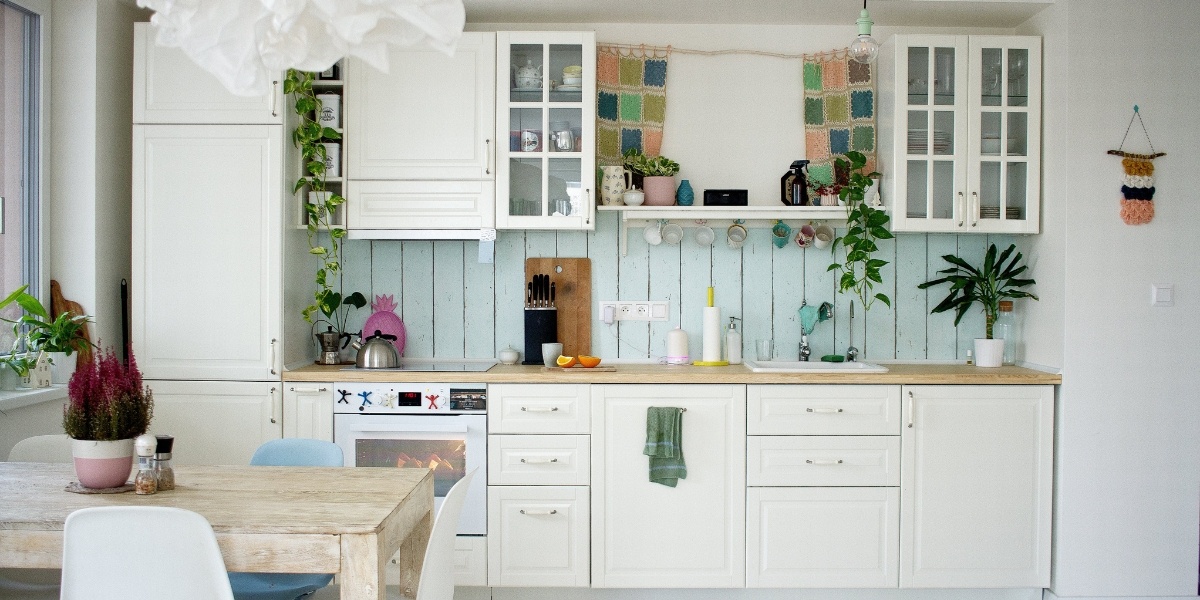When it comes to pet ownership, often apartment living with pets isn't always the easiest situation. Usually, your pets won't have many of the freedoms they might have if you lived in a traditional, free-standing home. After all, when your dogs or cats are home alone during the day, they could get into places they shouldn't go potty in the apartment or cause breakages from rough playing or boredom.
Unfortunately, this could lead to damage to your home, unwanted messes, and frustrating situations with neighbors. Although these are the downsides to having pets in your apartment, it doesn't mean everything is doom and gloom. Training sessions with your pet can avoid these potentially disastrous situations.
In this blog, our team at Country Classics has discussed the training sessions you should consider having with your cat or dog to help make apartment living smooth sailing. Plus, we have a Somerset apartment community that welcomes pets, so if you're also looking for pet-friendly apartments in New Jersey, we've got you covered.
How Long Does It Take For A Dog Or Cat To Adjust To Apartment Living?
When asking yourself how to train a dog in an apartment or a cat you might also be concerned by how long it could take for your beloved pets to adjust to apartment living. Although every dog and cat is different, there are average time frames surrounding how long it takes for your pet to adjust to living in one of the pet-friendly apartments in NJ.
On average, it takes two to three weeks for a dog to adjust to living in a new apartment, but it can take up to three months for them to fully adjust behaviorally. So, keep this in mind when considering apartment dog training.
In contrast, it can take a cat one to two weeks to adjust to a new apartment. If they show signs of wanting to leave a room or if they are begging at the door to be let outside, they are adjusting to their new home. However, if you want your pet to adjust and encounter minimal stress to your move to one of the pet-friendly apartments in New Jersey, provide them with a consistent routine surrounding exercise, feeding, playtime, potty breaks, and lots of love.
The Clicker Reward System For Cats
One of the easiest and best ways to train your cat to live in an apartment peacefully and with little rebellion is to use the clicker reward system. Most learned behaviors for apartment living are done through the clicker reward system. Luckily, teaching your cat to behave appropriately in an apartment with this system isn't difficult.
All you will need is a cat clicker. Many are available on the market, from cheap and simplistic to expensive and high-tech. Which you choose to buy to train your cat for apartment living will depend on your budget and needs.
Once you have acquired the clicker, you must teach your cat that it indicates a treat. To do this, click the device 10 to 20 times, with each click involving a treat. Doing this over a few days rather than all at once is best to ensure they learn what the clicker signifies.
When your cat associates the clicker with a treat, you can use it to teach it behaviors that relate to a 'good job.' For example, you can use the clicker after your cat successfully uses its litter box instead of other parts of your home. Clicking the device and giving the cat a treat will show them that the behavior they used was a good one.
The more you use the clicker system, the more your cat will acclimate to living in an apartment without bad behavior. Just be sure that the treats you give are ones your cat enjoys, and change them up every now and then to keep their interest piqued.
What Are Three Apartment Training Sessions With Your Cat?
Cats are naturally exploratory. They rustle tree leaves when pouncing on birds or other vermin and play with their toys and treats in the house.
So, let's be honest: apartment living can feel slightly stifling for your cat. This is especially true if they are used to exploring the big wide world or a large house while you're at work. Not to mention, finding a cat-friendly apartment in NJ can feel like an impossible task.
But let's not get ahead of ourselves. Before you can begin hunting for pet-friendly apartments in NJ, you must train your cat to live in an apartment with minimal fuss. Luckily, you now know about the clicker method, making life easier. So, let's have a look below at a few of the apartment training sessions you should be having with your cat.
1. Train Cats To Use Scratchers And Not Furniture
Cats love to scratch furniture. It's a universally known fact. Unfortunately, this can lead to unsightly cosmetic damage to numerous areas of your home, including your couches, carpeting, doors, tables, plants, and walling (in some instances).
The best way to stop your cat from doing this is to train it to use scratchers. Scratching posts and trees can be easily found online or at pet stores, so you shouldn't find it difficult to buy a few and place them in places your cat likes to frequent.
These scratching posts are attractive to cats and often entice them to stay away from your furniture. You can train them using the clicker method and positive reinforcement to keep them using them. This will encourage them to make the right choice in your apartment.
Using furniture covers specifically designed to prevent cats from scratching your things to smithereens while you train them to use scratching posts is also a good idea.
2. Teach Them To Use The Litter Box
Many people are curious about how to potty train a dog in an apartment, but what about potty training a cat? The approaches are vastly different, considering cats are easier trained to use their litter box than dogs are to use designated spaces in the apartment.
To train your 'cutie patootie' cat to use the litter box, you must ensure it's in a quiet, peaceful, and accessible location. It doesn't need to be out of sight, but it needs to be in a place your cat can easily reach. Often, this means it needs to be on the floor.
When training your cat to use it frequently, pick it up and put it in the box. This will help familiarize it. Cats are also fussy creatures, so you'll need to keep it clean daily to ensure they want to use it. Inevitably, accidents will occur in the beginning, so it's best to avoid punishing your cat. Instead, continue putting them in their litter box after meals and naps to ensure they begin using it to do their business. Eventually, they will learn the habit.
3. Train Your Cat To Block Out Noises
Cats can become wild if they are scared by unfamiliar or new noises. Unfortunately, if you live in an apartment, this could be a daily occurrence, causing many behavioral problems. That's why it's crucial to train your cat to become accustomed to changes in noises in your apartment.
To do this, you can gradually expose them to household noises like the blender, a vacuum cleaner, or people knocking on the door. If you pair these changes with positive reinforcements, like using the clicker to treat them every time they hear something new, they will be calmer and know not to overreact.
It might also help to create a quiet space in your apartment for your cat to retreat to if it feels overwhelmed. This can be a cat bed in your bedroom or somewhere else that doesn't experience much noise.
What Are Three Apartment Training Sessions With Your Dog?
Are you wondering how to apartment train a dog? This question has many pet owners scratching their heads and feeling confused, especially those who have never lived in an apartment before with their pets.
Having your beloved dog indoors will be an adjustment for you both, especially regarding potty training, managing barking, and teaching them how to stay in their cozy cages. So, if you would like help with learning the training sessions to have with your dog, have a look below at our tips before looking for dog-friendly apartments in New Jersey.
1. Potty Train Your Dog
Unlike cats, you won't be able to have a litter box for your dog to use during the day. This means you usually have to train your dog to hold their facilities for when you get home. Training-wise, this means you will need to take them for walks in the morning to do their business and in the afternoons or evenings after work.
If accidents occur initially, it's best not to overreact or get upset. Positive reinforcement is just as important with dogs as it is with cats. By all means, reprimand them so they know it is not right, but don't go overboard.
If your apartment has a balcony or patio, you might want to train them to use this space during the day to go to the bathroom instead of inside. The easiest way is to create an outdoor potty pad area or grass patch that mimics outdoor conditions.
You should also tell them to 'go potty' after meals and naps and follow it up with a reward when they listen to you. Gradually, they should start going outside during your walks or on the patio or balcony with fewer accidents indoors.
2. Undertake Barking Control Sessions
Nearly every dog barks, and although you might find it entertaining or endearing at times, there is a chance your neighbors might not. Since apartments are close to one another, there is a high likelihood that your neighbors next door, above or below, will hear your dog bark during the day when you're at home or work.
So, you must train your dog to bark only when necessary. Several gadgets on the market can help you limit barking, and there are even cameras and mics that you can install to speak directly with your dog if it is barking incessantly for no reason.
Yet before you get this fancy equipment, identify your dog's barking triggers. Sometimes, the DoorDash or delivery person sets them off, or it could be doorbells or loud noises. Once you identify the trigger, you can use commands like 'quiet' or 'stop barking' and reward them when they are silent with praise and treats. This will help them remember that being quiet gets them a reward, which helps them bark less.
You can also try distracting them with a fun toy every time they bark, or you can avoid reinforcing barking by ignoring them when it happens. If they don't get a reaction from you, they might stop.
3. Participate In Crate Training
Some luxury apartments, like Somerset NJ's community developed by Country Classics, come equipped with crates for pets. These crates won't harm your pets and are a good item to have in a home to encourage better behavior when you are not around.
However, crate training can be difficult since not all pets take kindly to being locked up in a cage during the day. But if you take the time and effort to show them that being in the crate is a rewarding experience, they will learn to tolerate it or enjoy it.
Crate training can effectively teach your dog to potty only where it is supposed to and keep it safe during the day away from your apartment hazards. If you struggle to crate train your dog, hiring a reward-based trainer might be a good idea to help your dog associate good things with being in the crate, making your apartment life easier.
If you want to try crate training alone, show your dog that the crate is a safe space. Be positive about the crate and constantly show happiness when around it or dealing with it. Then, when your dog is comfortable being in the crate, introduce elements like feeding in the crate and using the bathroom inside it, too.
Tips To Help With Apartment Pet Training
Apartment training your pets can be difficult, but the process is far easier if you know what you're doing. Now that you know how to train your cat or dog, you might want to learn a few tips to help make apartment training even easier. Let's take a look at the activities and amenities in Somerset, NJ that will assist you:
-
Dogs can enjoy Colonial Park Dog Park for off-leash fun. Attending a dog park frequently will help dogs let loose some of their pent-up energy and help them be calmer during the day when they are home in your apartment.
-
Grooming options include PetSmart Grooming in Bridgewater and The Dog Spa in Somerset. Grooming your dog and cat will help maintain cleanliness in your apartment, ensure they feel relaxed and well taken care of, and help sway them away from bad behavior.
-
K-9 Resorts Daycare & Luxury Hotel in Fanwood near Somerset, NJ, offers grooming and daycare. This is a good option if you want your pets out of the apartment while you're at work.
-
Kitty City at St. Hubert's Animal Welfare Center in nearby Madison provides grooming and boarding. This ensures your cats are well cared for during the day, aiding in easier apartment living.
Rent A Pet-Friendly NJ Apartment Today With Country Classics
For many of us, our pets are part of the family, but there is no denying that renting an apartment with a pet doesn't have its fair share of challenges.
Fortunately, with our tips, you shouldn't encounter any issues training your cat or dog to live in a pet-friendly apartment at The Somerset at Montgomery, in Montgomery Township, NJ, owned and operated by developers Country Classics.
Our apartments are made to accommodate all family members, including your beloved pets. So contact us today to learn more about our amenities and why you should make Somerset, NJ, your new home.


-Jul-19-2024-05-00-01-1133-PM.jpg)



Leave a Comment